I love games. Always have, always will. Digital, tabletop, physical—doesn’t matter. My first career was playing one, but I think the biggest thing that’s drawn me to them is what games reveal about the person playing them. What lengths are you willing to go to win? How do you feel when you lose? Do you abide strictly by the rules, or are you willing to bend or break them entirely? At its core, a game is a wholly unnatural construct, something we collectively agree isn’t real, yet games can have absurdly profound effects on reality, creating myths and monsters out of mortals.
I also love books, and some of my favorite books involve games. Not due to any particular nuance of a specific game itself, but how these books use the ideas of games to explore broader concepts of empathy, social structure, and human nature. The game itself is secondary to the people involved, a platform from which to grapple with much larger ideas, because for me that’s what the best SFF has always been about—a new lens we can use to examine who we are, where we’ve been, and what we might become.
Buy the Book
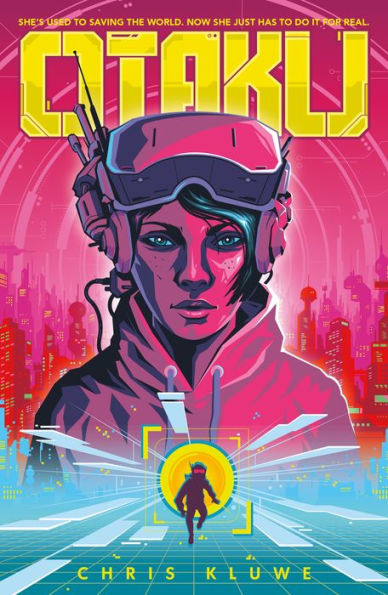

Otaku
When I wrote my book, I wanted to pay homage to the games I’ve played, but I also wanted to try and follow in the footsteps of those who made their works about so much more than just a competition of wits or athleticism. I wanted to examine the culture that surrounds games, a culture many consider divorced from reality, but a culture that permeates our reality nonetheless. I wanted to make people think about something more than just the game, and I have no idea whether or not I’ve succeeded (I hope I have!), but I know for certain that the following books and the games they contain are well worth your time.
The Player Of Games by Iain M. Banks
On the surface, this is a very straightforward book about a man named Gurgeh who plays games, and who is very good at playing games, but once you start reading you realize that The Player of Games is about so much more than that. Set in Iain Banks’ Culture universe, the rules of the game Gurgeh is recruited to play are never explained, but they don’t have to be, as the book is really about how our choices in a game designed to simulate reality reveal who we really are and what we value, and what it means when someone who was expecting to win ends up losing. Like Banks’ other Culture novels, the environments are fantastic and at times unsettling, but the story told is quintessentially human.
Buy the Book
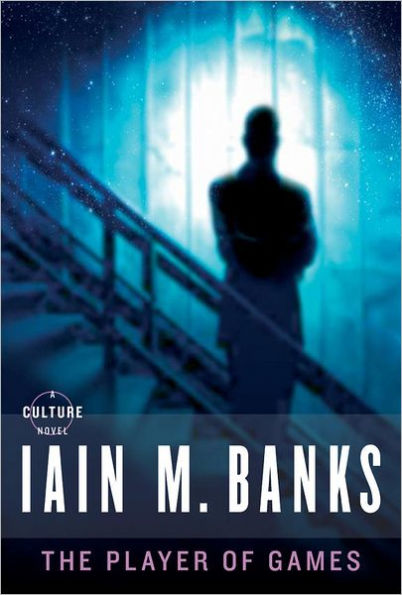

The Player Of Games
Thud! by Terry Pratchett
I’m a huge fan of the Discworld series, and Thud! is another excellent entry to that universe. The eponymous game of the novel makes multiple appearances, each filled with Pratchett’s typical blend of humor and cutting insight, but the focus is never on the outcome of the game itself, but learning to think from a new perspective, best exemplified when Sam Vimes learns that playing a complete game requires playing as both sides. This book gives hope that perhaps differences can be solved with the clash of carved stone figures in a pleasantly lit room instead of bloody conflict on a forever battlefield. If you’re looking for wit and grace while tackling weighty issues of racism and the cycle of revenge, you can’t go wrong with Thud!
Buy the Book
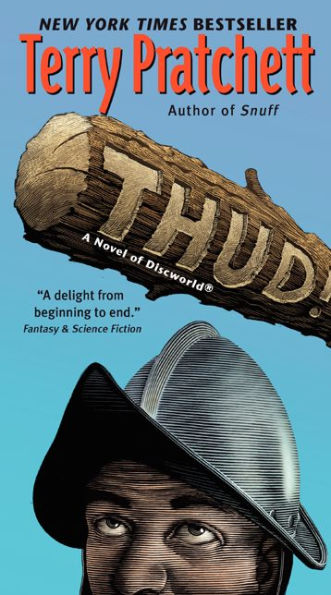

Thud!
Wyrm by Mark Fabi
This is an older book, first published in 1997 when fears of Y2K were prevalent, and deals with a sentient computer virus that may or may not be looking to destroy the world. Unfortunately for the protagonist, the only way to track it down is by eventually playing through a specially designed massively multiplayer online game (MMO) that contains numerous references to Monty Python and other bits of geek culture. What I really like about this one is that the author is also a psychiatrist, and it contains some interesting ideas on the nature of human thought and the meaning of intelligence. Some of the culture references might be a bit dated now, but the concepts Fabi wrestles with regarding what drives our decision making processes are still very much pertinent and well worth exploring.
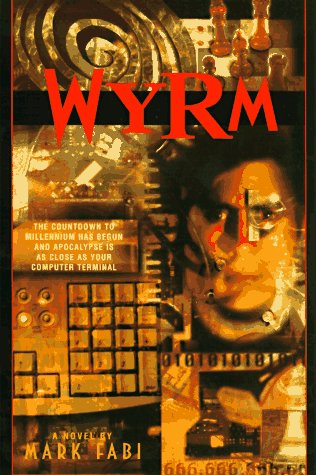
Halting State by Charles Stross
Stross is a magnificent author at exploring complex technical issues in wild yet realistic ways, and Halting State uses both an MMO game and an augmented reality game to ponder issues with cryptography, digital nation-state conflict, and financial markets (all of which are even more relevant today). While the second person perspective can feel odd at first, after several chapters I felt like it was totally natural, and any book that has a gang of orcs backed by a dragon robbing a bank has my enthusiastic recommendation. I will say, out of all the books I’ve talked about, Halting State’s augmented reality game is probably the most likely to be something we’ll actually see in real life, which is slightly terrifying to think about, but forewarned is forearmed, so go read up on it.
Buy the Book
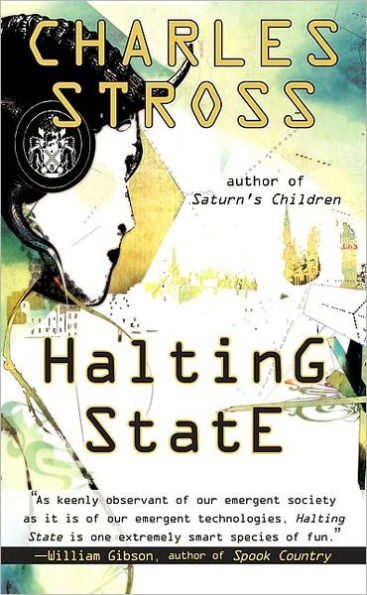

Halting State
Empires Of EVE by Andrew Groen
For the final book, I’ve decided to throw you a bit of a curveball. Empires of EVE is about a real life MMO, EVE Online, and chronicles a multitude of battles, betrayals, and bombastic personalities that would fit right at home in any fictional work, but they’re all real people and events that occurred in the gameworld of EVE. Groen does an incredible job of explaining various intricacies of the gameworld so that the reader has enough knowledge to understand who is fighting and why a particular conflict is important, but never bogs down in unnecessary minutiae. He also goes into depth on one of the things that makes EVE unique among MMOs—the amount of real life maneuvering and shenanigans that occur in service to in-game goals, including spying, propaganda, and infiltration of opposing factions that can span months or even years of work. EVE Online is one of the few MMOs I haven’t played, but it’s one I’ll read about whenever it pops up in the news, and Empires of Eve is a collection of tales that would do any bard proud.
Buy the Book
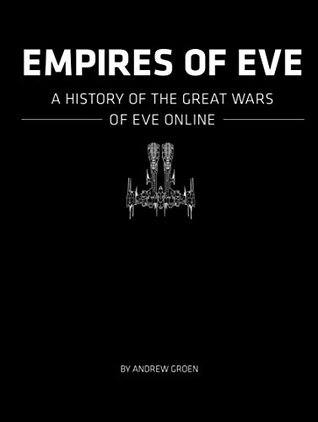

Empires of EVE
Chris Kluwe is the author of the acclaimed non-fiction collection Beautifully Unique Sparkleponies, a contributor to Press Start To Play, and the lead designer of the tabletop card game Twilight of the Gods. A former NFL player, Kluwe has received wide attention for his TED talk about the future of technology, virtual reality, and empathy, and has been profiled in The New York Times, The Wall Street Journal, USA Today.










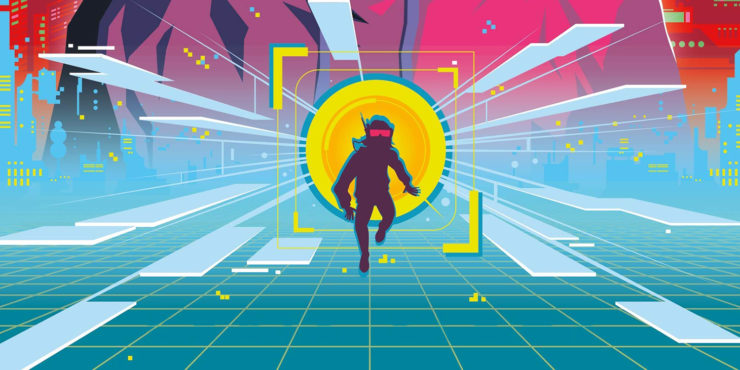
Ready Player One seems an obvious omission.
“Octagon” by Fred Saberhagen features a computer playing a play-by-mail game, and taking the game a bit too seriously…
Dream Park
King’s Blood Four
I get a kick out of YA SFF along these lines. Monica Hughes’s Invitation to the Game (later reissued as just The Game), William Sleator’s Interstellar Pig, and Vivian Vande Velde’s User Unfriendly and Heir Apparent come to mind.
Wyrm sounds like the book that everyone wanted (but probably didn’t find or know about) after reading Ready Player One and wanting similar.
As comment #4 pointed out, Tepper’s True Game series seems another obvious omission.
Well, there’s always Ender’s Game…
(I read Ender’s Game, Player of Games and Game of Thrones within a relatively short span, two decades ago, and I remember ending up totally convinced that you couldn’t go far wrong with a book with “Game” in the name. I even planned that if I ever wrote a novel it would have a game (in the name at least). Alas, never got round to the actual writing part!)
There are no obvious omissions. The title of this post is concerning five books about games and life. Not the best five or the most well-known five and certainly not more than five. I’m sure there could be many more posts on this subject but I’m guessing he didn’t choose some of the so-called obvious ones on purpose, trying to highlight some others for reasons of his own. I’m betting if you wanted to contact Tor.com about writing more posts on this subject you could.
I’d recommend Claire North’s The Gameshouse. Also most of her other books, but that’s the one that fits this theme.
The Guardians of the Flame series by Joel Rosenberg. Starts out as a FRPG and moves quickly into an alternate reality.
Anecdotally, one can find out many things about people when one plays games with them. My husband and I invited a young man and his intended bride to play MONOPOLY (TM) one afternoon–because he wanted us to meet her (and comment later.) The next day, I told him, “Stan, that girl will break your heart and take everything of value that you hold. She plays for keeps and takes no prisoners.” He managed to break up with her before things went bad; she went on to a new conquest who barely made it out of her clutches alive. So, yes books about games and gaming culture are very telling–from Alice Through the Lookingglass onward. Then there are all the novels obviously based on versions of Dungeons & Dragons written in the 1980s and 1990s that were not mentioned.
What about the Otherworld series by Tad Williams? That was a pretty immersive gaming experience…
There’s a whole developing sub-genre out there called LitRPG that specifically exists because of Role Play Games, MMO games and VR (especially FIVRMMO’s) many being published as web serials before coming out in book form.
I personally look forward to The Wandering Inn every week.